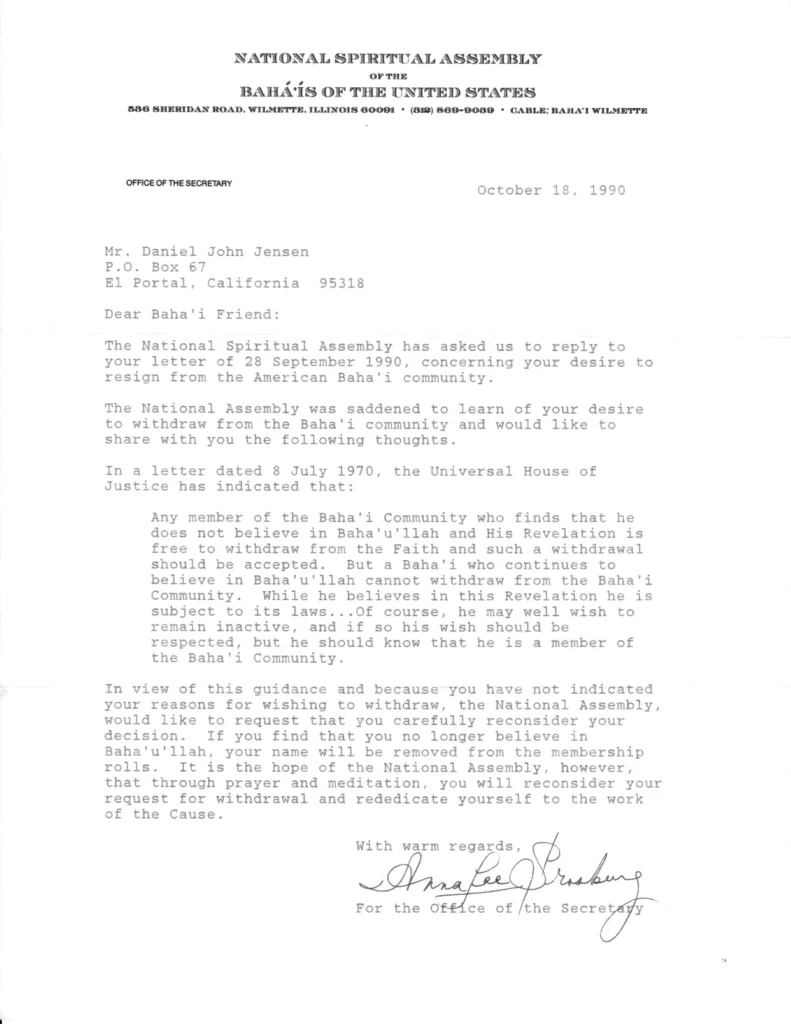Look what I just found in the garage!
Once upon a time I was 25 years old and I tried to resign quietly from the religion I’d been born into—and formally “declared” myself into. I’m not sure that my declaration, at the mature age of fifteen, amounted to more than saying “yes” to my parents, but sure, I was a believer—just as I’d been a believer when I was five. I don’t remember being particularly interested in religion at the time.
By the time I resigned, or requested to do so, I’d been around the Bahá’í block, so to speak. I’d studied the Bahá’í religion intensely, studied Arabic, served on a Local Spiritual Assembly, participated in several mass teaching projects in four states, and served at the Bahá’í World Centre in Haifa, Israel. I knew a thing or two about the Bahá’í religion, but I hadn’t believed in it at all for more than two years, and I was watching a Bahá’í leader in my local community behaving quite badly, so I was moved to mail in my resignation.
The NSA replied that I could not be permitted to resign unless I was no longer a believer, which struck me as an amusing affront. Here I’d thought my faith—or absence thereof—was between me and God, presuming the existence of God. Membership cannot be a matter of belief; it is a social institution. What if I did tell them that I don’t believe? Perhaps deep down in my heart I actually did believe. How can belief really be a matter of social identity? Well I suppose it can be. It seems to be just that in the Bahá’í Faith. The Universal House of Justice makes that clear in a letter cited by the NSA in their reply to my attempted resignation. Yet still, would not then my resignation be tantamount to a declaration of unbelief? Given the evident social basis of Bahá’í religion, are not belief and membership one and the same?

© 2018 Kaweah (Dan Jensen)